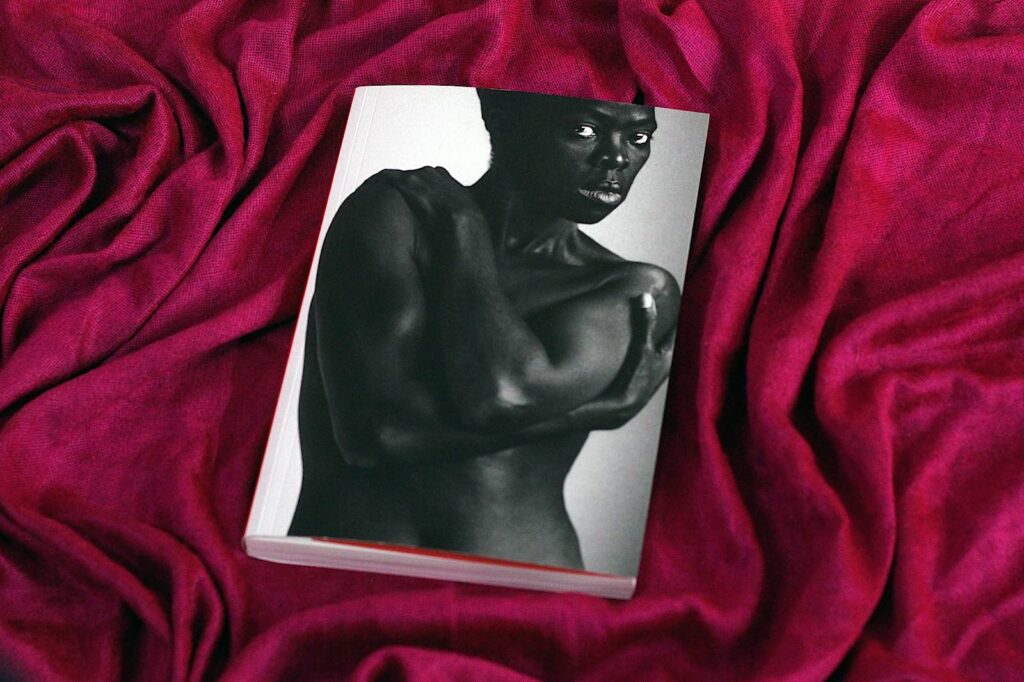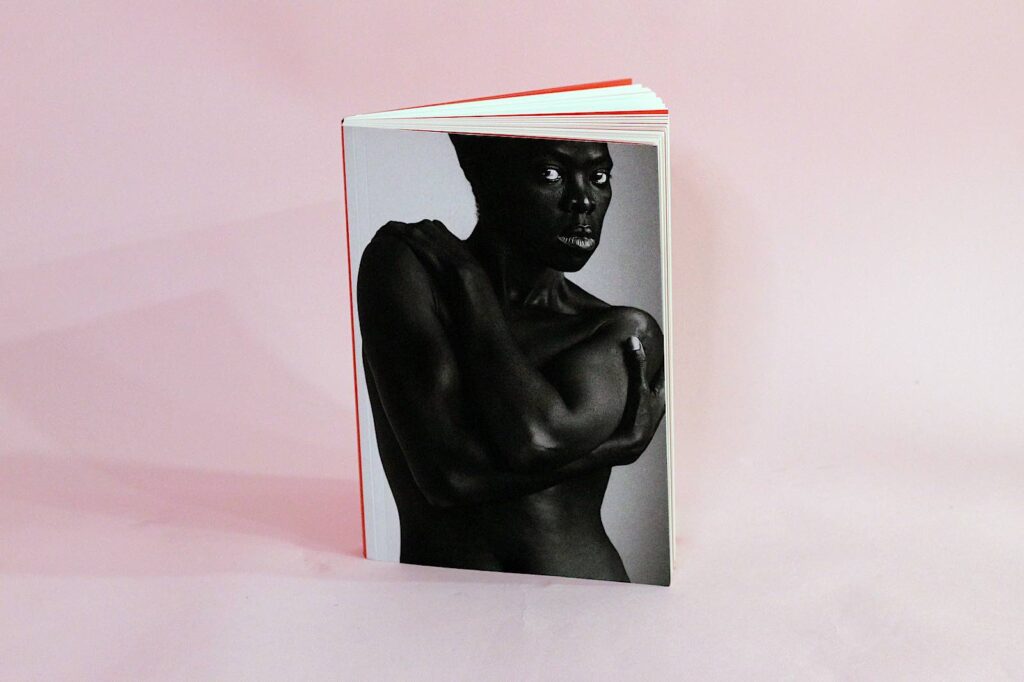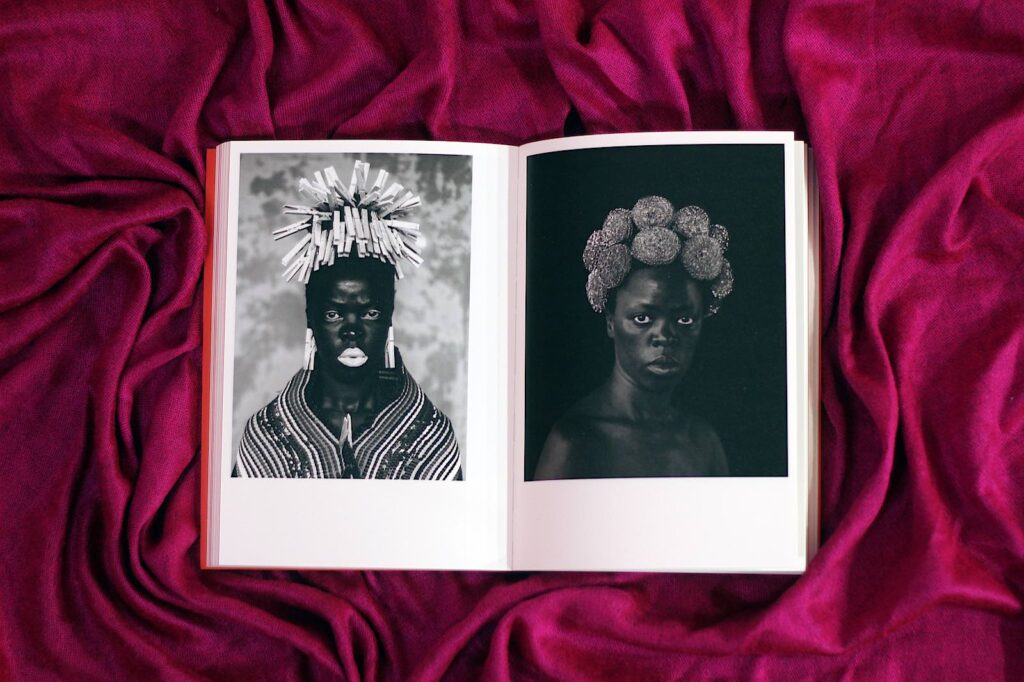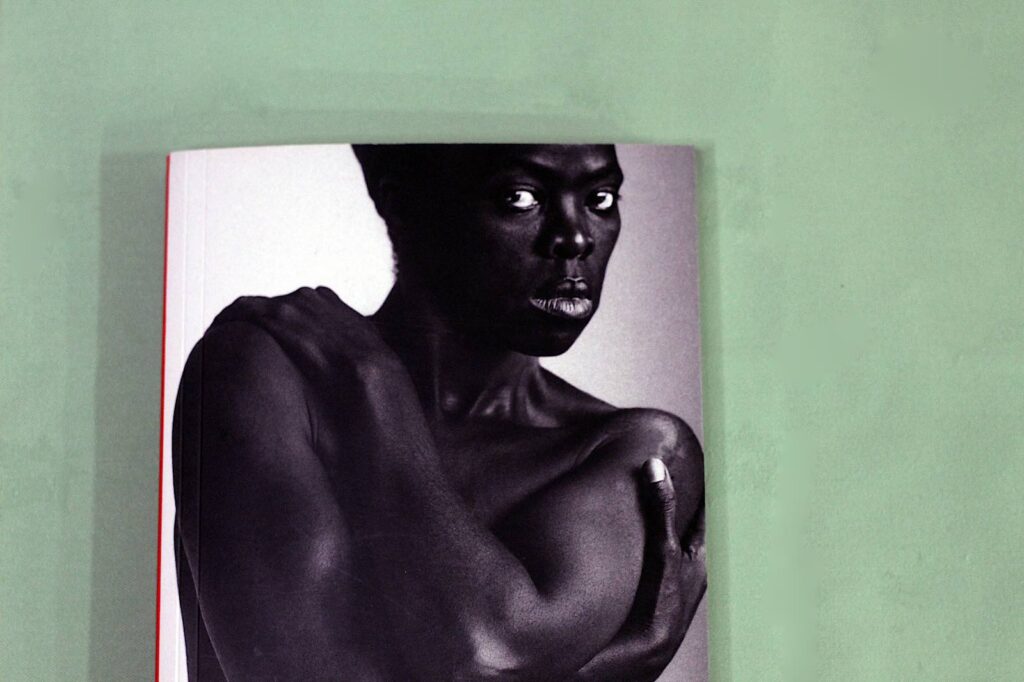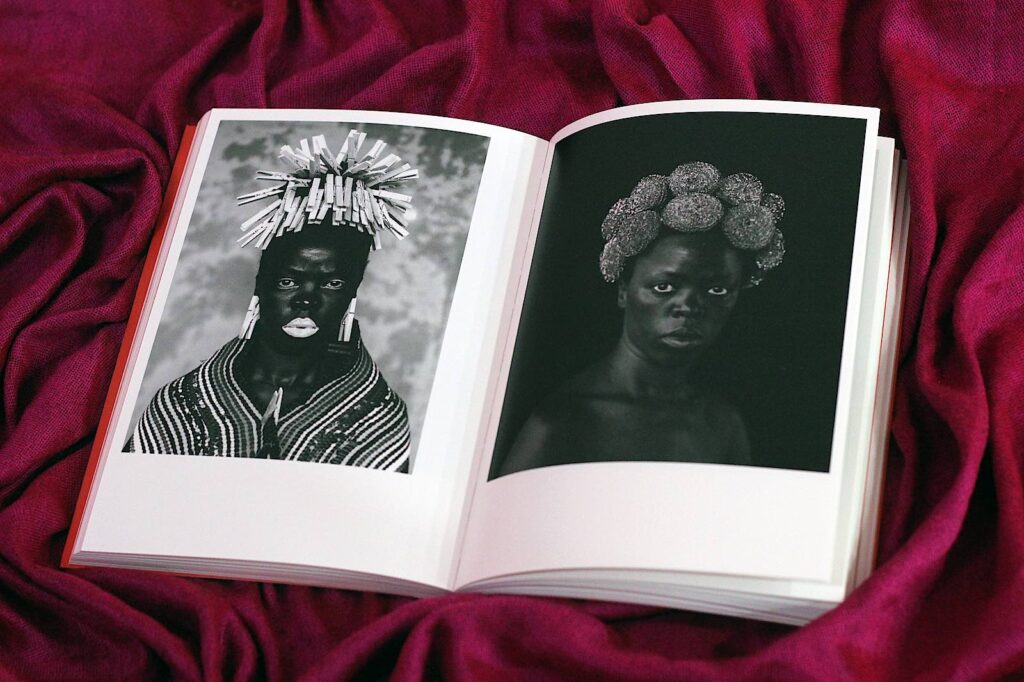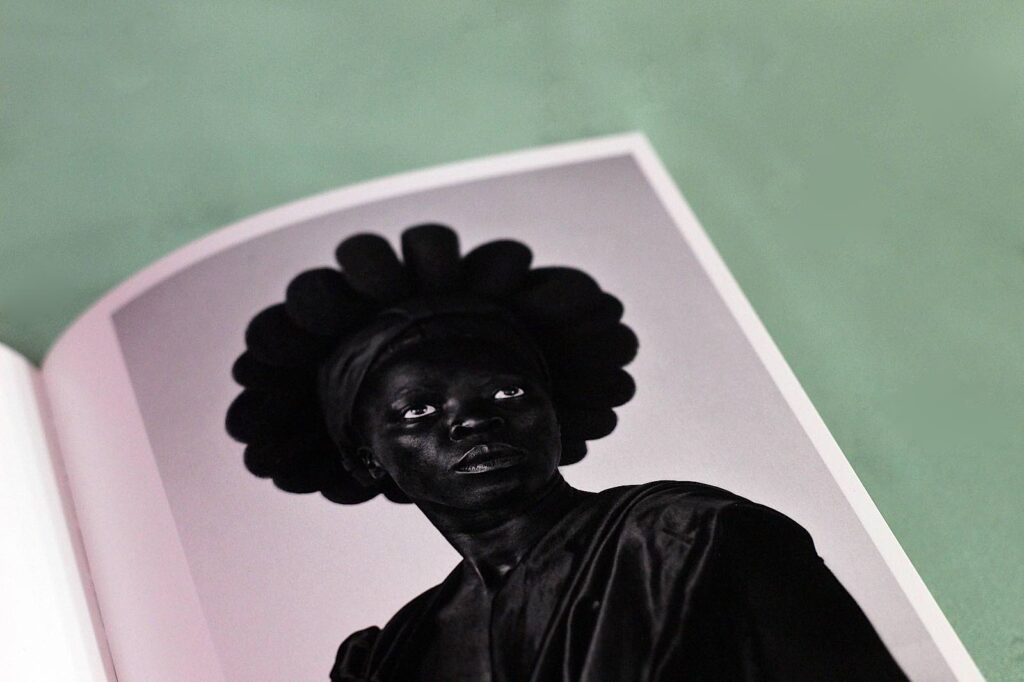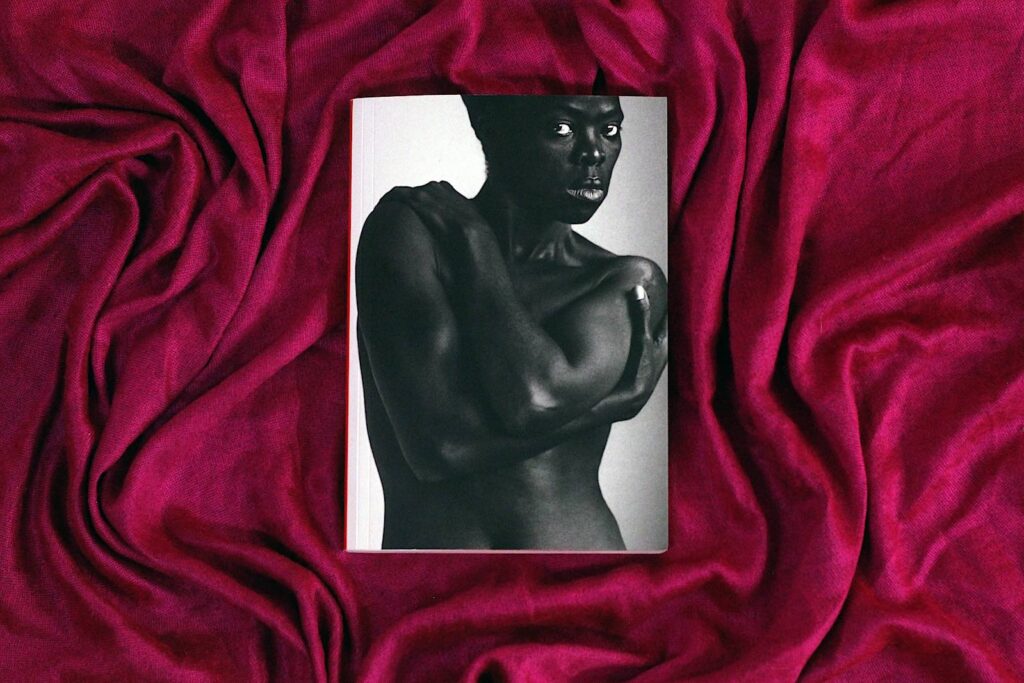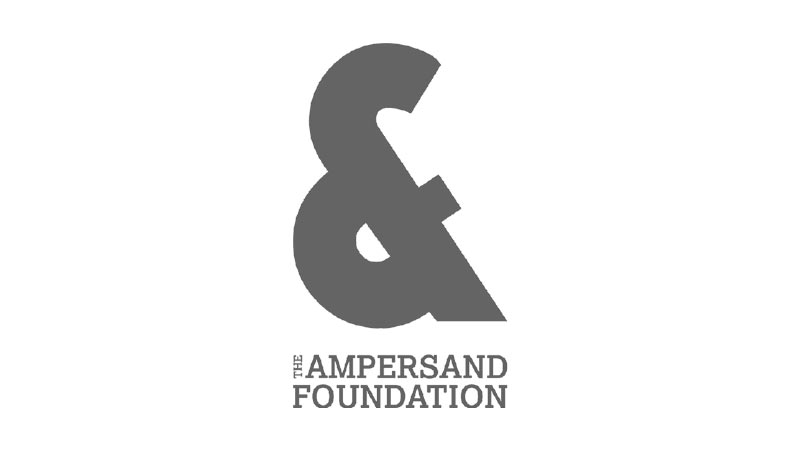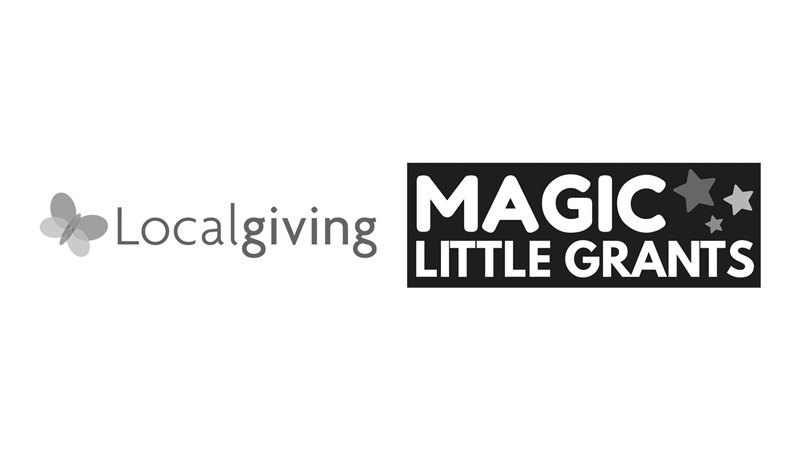Zanele Muholi Exhibition Book
Since the early 2000s, visual activist Zanele Muholi has used photography to re-envision the realities of Black LGBTQIA+ lives in South Africa.
In Zanele’s own words, their intention is to “to re-write a Black queer and trans visual history of South Africa for the world to know of our resistance and existence at the height of hate crimes in South Africa and beyond.” Published in tandem with a Tate exhibition held in 2020, the Zanele Muholi Exhibition Book showcases the breadth of their ongoing photographic and activist practice.
Zanele’s work centres around the documentation and celebration of Black lesbian, gay, bisexual, transgender and intersex communities in South Africa, from a perspective which seeks to look beyond deviance or victimhood. They consider those they photograph as participants rather than subjects, who join Zanele in telling their stories; offsetting negativity associated with queer identities, and challenging presiding stereotypes and patriarchal heternormativity. Their photographs have brought the realities of injustices faced by these communities—including hate crimes, “corrective” rape, assault, and HIV/AIDS—to the forefront of public attention.
This richly illustrated book features images spanning the past 20 years of Zanele’s creative output, from their first body of work Only Half the Picture (closely-cropped photographs depicting survivors of rape and hate crimes, which sought to bring visibility to queer people in the Black community without diminishing their anonymity) to their ongoing series of self-portraits Somnyama Ngonyama—translating from isiZulu to “Hail the Dark Lioness”—which confronts the deeply personal politics surrounding race, representation and identity in visual culture. The book also features some of Zanele’s recent works and never-before-published images.
In addition to Zanele’s stunning photographs, this publication contains six specially commissioned essays which explore their work in detail. Also featured is an interview with Zanele, discussing their own perspectives on their photography and activism.
The book begins with a glossary of terms which relate to prevalent issues within Zanele’s activism. This provides the reader with a more nuanced understanding of the themes and narratives incorporated into Zanele’s work. Also included in the book is a chronology of key moments in South Africa’s history from 1948 to 2019—including sociopolitical occurrences, events related to apartheid, changes in legislation affecting LGBTQIA+ communities, and defining personal moments in Zanele’s own life—to provide more insight for the context in which their work exists.
Today, Zanele remains a voice of advocacy for Black LGBTQIA+ lives in South Africa and beyond.
By Ally Bartley

